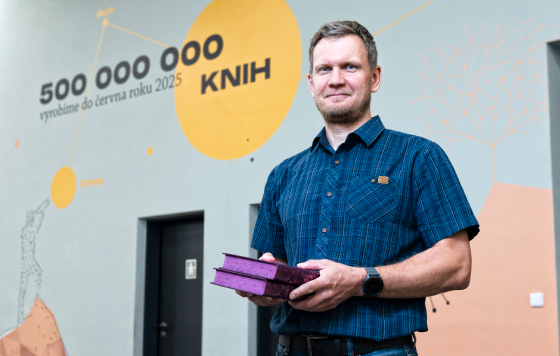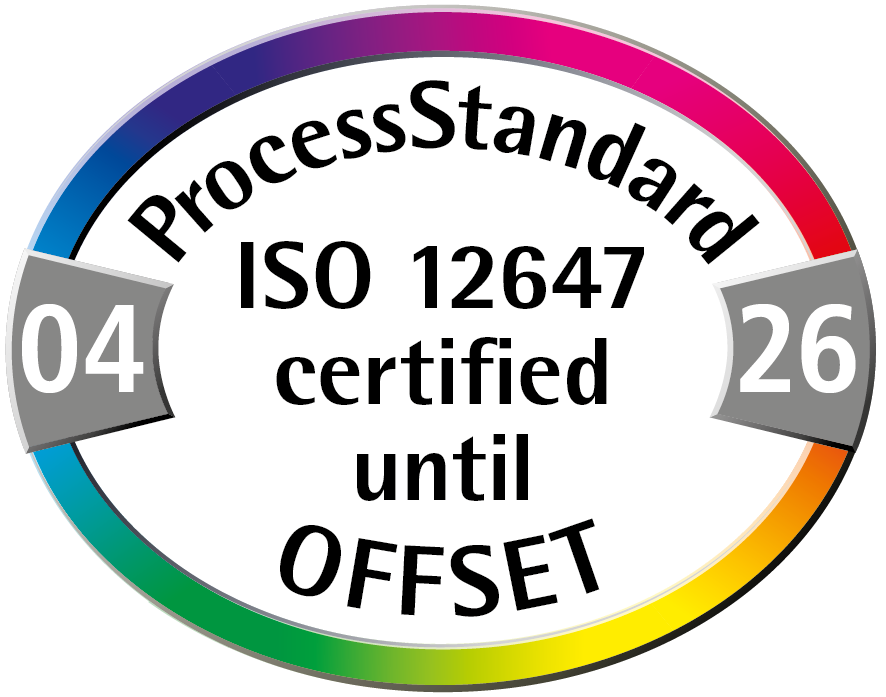Text by: Roman Bromník
Books have always been a source of entertainment and wisdom for me, but also a beautiful object that can brighten up a library.

In hindsight, I recall with amusement the hilarious occasions when, as a child, I received a coveted book from my parents and ran happily around the room with it until I finally sit down and start reading it. Now, a couple of decades later, I have the opportunity at FINIDR to participate in their creation.
A year and a half ago, I started as an assistant production manager, and because I came from a different industry, the first year was mainly a lot of learning. In the first few months, I was trained on big machines like the binding line and the plate machine, and gradually worked my way through the other pitfalls of printing. As I became more familiar and confident with the bookbinding processes, the first projects started to come in. These included the introduction of 5S at selected workplaces, involvement in the acquisition of a new sheetfed machine, but also setting up the process for acquiring new investments or verifying the functionality of some already implemented but currently unused equipment.
Since March, I’m the new Head of Industrial Engineering, where my colleagues and I are dedicated to supporting processes across the plant. This includes activities such as collaborating on ongoing projects, identifying and implementing areas for improving efficiency, quality and working conditions, 3D printing of spare parts, as well as analysing and preparing models for wage incentives. One of the most important tasks at the moment is the implementation of a process to address the root causes of quality discrepancies and to set up proper and regular communication between the different levels in production. In such an extreme custom type of production as a printer, it is necessary to have processes set up in detail, with perfect continuity, where there is minimal room for error.
And when it does occur, it must be properly analyzed and mechanisms set up to prevent it from happening again.
In the past, I have worked for a long time in various management positions in medical device manufacturing where the final product directly affected people’s lives. While we don’t experience this in our print shop, I would still say that we can be proud that we are creating work that impacts the lives of others. In this context, I would like to highlight the fact that we have repeatedly printed editions of a slim volume of Miloslav Nevrlý’s The Carpathian Play, which is one of those books that changes lives. Carpathian Plays is fiction, travelogue and reading about the soul – among the powerful and enchanting descriptions of the Romanian mountains and valleys are woven hilarious and profound life plays that make us happier, freer, and able to see more clearly many things around us. Decades have passed since the northern mountaineers printed them in a semi-legal samizdat on rotary printer, and the book has influenced thousands of people. I first got my hands on the first post-revolutionary edition of this book when I was about 15, and I can still quote some passages from it by heart. Take a moment to read them.






